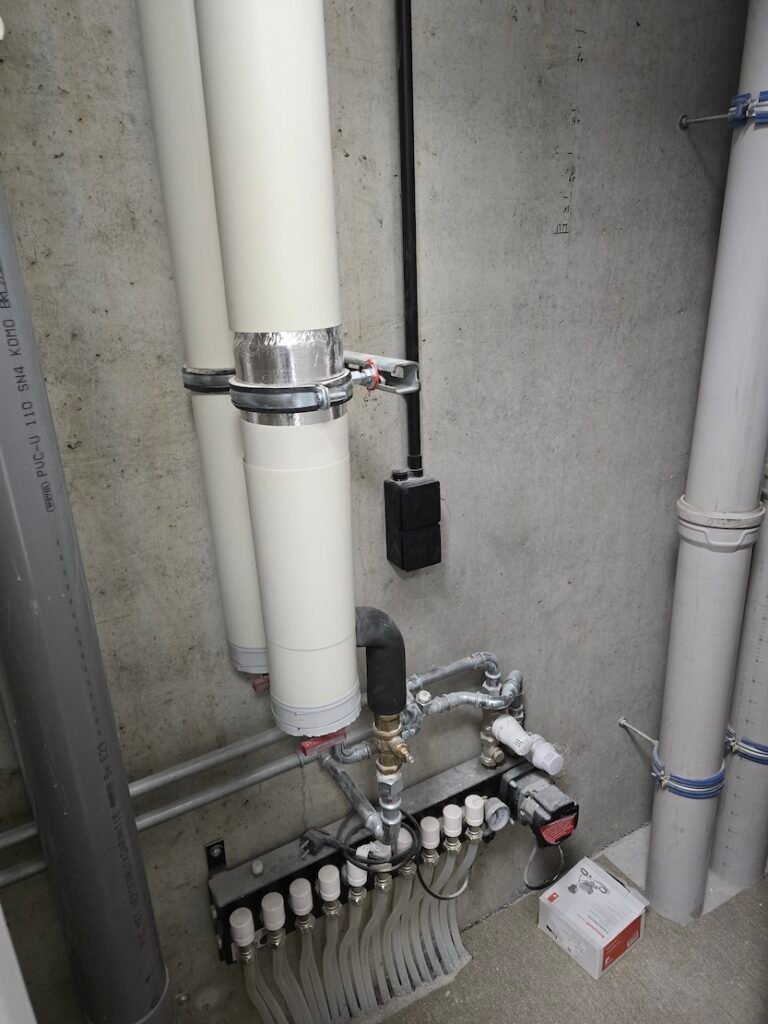Disadvantages of District Heating Networks
District heating networks are often presented as a sustainable heating solution, where heat is generated centrally and then distributed to various buildings and homes. While the concept may seem appealing on paper, many consumers experience daily issues with these systems. A district heating network offers limited benefits when there is no freedom of choice or competition, which is often precisely the problem. Law & More is a law firm with expertise in energy law that does not leave heat grid customers out in the cold.
The Disadvantages of a District Heating Network
- Monopoly Position of Suppliers
One of the biggest issues is that consumers are often forced to connect to a single supplier, with no option to switch. This creates a monopoly position for district heating suppliers, leaving consumers without any power to demand market-competitive prices or services. In the Netherlands, only a few large district heating suppliers exist, and they set the rates, service quality, and terms without any real competitive pressure. - Limited Contract Flexibility and No Option to Switch
Where consumers with traditional energy suppliers can choose their contract type (variable, fixed, or dynamic) and decide when to switch, they have no such freedom with district heating suppliers. With regular energy suppliers, consumers can select the provider with the lowest price and switch when financially advantageous. This flexibility is entirely absent with district heating networks, leaving consumers locked into the system without alternatives or room for negotiation. - High, Regulated Rates with No Discounts
The Dutch Authority for Consumers and Markets (ACM) annually sets the maximum rates for heat, delivery sets, and connection fees for consumers on a district heating network. Under the current Heat Act, ACM is required to calculate these maximum rates based on the average costs for households with a gas boiler. For the maximum rate per gigajoule (GJ), ACM uses the average gas price for an annual contract as of January 1st. Although this system is intended to protect consumers, the rates are, in practice, very high. Unlike energy suppliers that face competition and often offer attractive discounts to new customers, district heating consumers often pay the maximum rate without any opportunity to negotiate or receive discounts. This makes district heating an expensive choice with no added benefits for the customer. A choice made by someone other than the one who has to pay. It is therefore, questionable whether heat companies pay attention to consumers or just see them as ATMs. - No Choice for Tenants
For tenants, the situation is even more complex: they have no choice and are fully dependent on the heating supplier selected by the landlord. This mandatory connection means that tenants are tied to the district heating network, with no option to switch to cheaper or more sustainable alternatives. - Costs and Technical Requirements for Homeowners to Disconnect
Homeowners have a theoretical exception: they sometimes have the option to disconnect from the district heating network and switch to alternative heating options, such as a heat pump or solar boiler. In practice, however, this is not an easy option. The costs of disconnecting are often high because removing the connection requires technical modifications to the home. This may include installing an entirely new heating system and possibly adding insulation for efficient heating. Additionally, contractual obligations with the district heating supplier often complicate the process and add extra costs. As a result, many homeowners are discouraged from making the switch, despite the theoretical option to disconnect. - Poor Service and Delays
District heating customers often complain about the slow and poor service provided by heating suppliers. Outages can take hours, or even days, to resolve. And because there is no competition, suppliers lack the incentive to improve their service or respond quickly to issues. - Questionable Sustainability of Biomass
Many district heating networks present themselves as “sustainable” by using biomass, but the sustainability of biomass is highly controversial. Biomass combustion or gasification releases CO₂, and the use of wood in biomass leads to deforestation and biodiversity loss. Nevertheless, district heating suppliers using biomass often profile themselves as environmentally friendly, even though this form of energy does not contribute to sustainable climate policy in the long term. In reality, consumers are misled about the true environmental impact of their heat source. Of course, this is different with geothermal energy.
Legal Support for Issues with District Heating Networks: “Tackle District Heating” Campaign
Because we understand the problems with district heating networks very well, Law & More wants to help consumers facing legal issues with their heating supplier. We are ready to take legal action against district heating suppliers that abuse their monopoly position or impose unreasonable terms on consumers. That this is possible is shown by the judgments of 16 July 2024 by the ‘s-Hertogenbosch Court of Appeal, in which the court found that Ennatuurlijk had unjustifiably charged a connection fee in the Eindhoven district of Meerhoven and the Tilburg district of Reeshof for many years. Ennatuurlijk appealed the judgments in cassation.
To support you, Law & More is offering a 25% discount on the standard hourly rate for energy law services consumers of €250 excluding VAT, throughout November and December 2024 if you entrust us with your case against the district heating supplier. This Tackle District Heating campaign is designed to help consumers protect their rights and pressure heating suppliers to provide fair and customer-friendly service.
Contact Us for Legal Assistance
Do you have issues with your heating supplier, or are you dissatisfied with the service you’re receiving? If so, please get in touch with us. Law & More does not leave heat grid customers out in the cold. Our legal experts are here to help you defend your rights and take appropriate action against the monopoly practices of district heating suppliers.
Law & More is ready to fight for fair treatment of all district heating consumers
